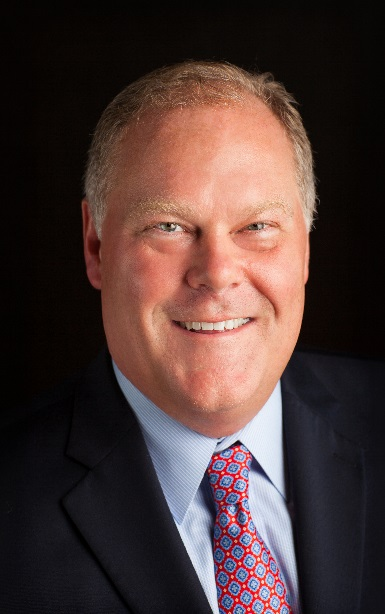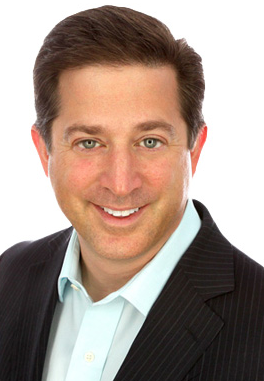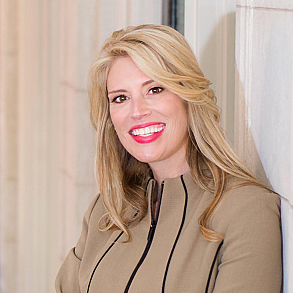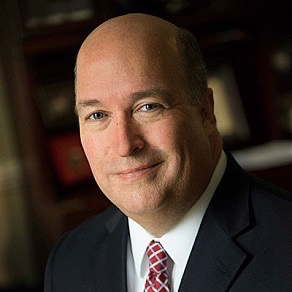current to the covid-era
Critical Topics,
Deep Experts.
CRISIS LEADERSHIP covers approximately 25 hours of content across five important bank topics. Our industry-leading facilitators will equip you and your employees in building leaders ready to handle any crisis.
menu
Asset/Liability Management Strategies
Since the end of the Great Recession and Financial Crisis in 2010, the profits and returns of the U.S. Banks have improved consistently. However, U.S. interest rates have now plummeted back to zero again and the economy is now heading into a recession. This unprecedented rapid shift from earnings tailwinds into headwinds will likely push U.S. Bank earnings toward break-even, or below, this year. In this training session we will address the opportunities available to U.S. banks which can help create incremental profit by taking advantage of this market disruption while continuing to focus on the strategic initiatives that can enable your bank to emerge stronger than ever.
About The Course
A snapshot of community bank investment portfolios, and how they have evolved in the past 5 years
- Changes in bond market conditions in response to monetary and stimuli resulting from the COVID-19 pandemic
- Balance sheet risk factors that a community bank should have a plan to address
- Funding challenges and opportunities that have emerged in the last year
- Suggestions for asset and liability strategies to help a community bank arrive at the proper risk/reward junction
A Few Of The Topics This Course Will Cover:
- How U.S. Banks should proactively adjust their balance sheet positioning and pricing given the Federal Reserve’s quick shift from pushing short-term rates higher to zero over the last year.
- How the bond market rally gives U.S. Banks the opportunity to raise longer- term funding at historically low costs, which should improve liquidity and fund long-term growth.
- Understand how U.S. Banks with excess liquidity/capital can take advantage of opportunities to offset the impact of declining interest rates to their net income.
- Ways to assess your bank’s strategic strengths and weaknesses so that your management team can focus all of their attention on enhancing your bank’s operational effectiveness.
- Determining long-term franchise value and how to look past the short- term market volatility that can be so distracting and counter-productive.
Presented by:

Jim Reber
CEO of ICBA Securities

Marty Mosby
Bank research analyst
menu
Bouncing Back: Resilience, Mental Toughness, and EQ
Emotions drive people. People drive performance. Develop the capacity to recover quickly from difculties. In order to keep going in the face of adversity and help others follow requires expertise in certain areas and skills sets.
About The Course
- Get connected. Building strong, positive relationships with others can provide you with needed support and acceptance in both good times and in different times as well.
- Make every moment meaningful. Do things that gives you a sense of accomplishment and purpose each day. Set noble goals to help you look toward the future with meaning.
- Reframe perspective. Learn from experience. Think of how you’ve coped with past challenges. Reflect on the skills and strategies that helped you through tough times. Reflect on past experiences to help you identify new behavior patterns to guide your future behavior.
- Positivity. Remain hopeful. You can’t change the past, but you can impact your future. Learn to appreciate the present. Becoming agile and change ready makes it easier to adapt with less anxiety.
- Manage Stress and take care of yourself. Tend to your own needs. Take part in activities you enjoy. Include physical activity daily. Get enough sleep and eat a healthy diet. Practice stress management and relaxation techniques.
- Develop Emotional Intelligence. Be proactive. Don’t avoid your problems. Work through your emotions. Interact with others productively. Determine out what needs to be done, develop a plan, and act.
While it can take time to make progress from a major stumbling block, distressing event or even a loss, recognize that your circumstances can be improved. It just takes work. When of the most successful ways to promote resilience is by developing emotional intelligence. In this course, we will help participants:
- Develop emotional literacy
- Recognize their patterns
- Practice consequential thinking
- Learn to navigate emotions
- Promote optimism and intrinsic motivation
- Discuss ways to increase empathy
- Develop noble goals
Presented by:

Brad Federman
CEO of PerformancePoint, LLC
Brad Federman is the Chief Executive Of of PerformancePoint, LLC. Brad is an author, a speaker and a consultant with more than 25 years of corporate experience in leadership, creating employee and customer experiences, building resilient relationships and promoting collaborative cultures. His background also includes sales, marketing, product development and operations. He sees his role as, “Inspiring others to discover and live their “possible.” As the founder of Performancepoint, LLC, Brad has worked as a leadership coach, a facilitator, an executive and an entrepreneur with organizations and their executive leadership in different industries. His leadership coaching clients have included household names such as Nordstrom, FedEx, Embassy Suites, Homewood Suites, Gemini Hospitality, Kaiser Permanente, Mayo Clinic, Blue Cross Blue Shield, Deloitte & Touche LLP, Hewitt and Associates, Gillette, Polo Ralph Lauren Corporation, Wal-Mart Stores, Inc., AT&T Wireless, Dow Chemical Company, Nextel, Genentech, Amgen, WellPoint Health Networks, Tyson Foods, Subaru of America, New York Life, St. Jude Children’s Research Hospital, and Gulf Bank. Prior to founding Performancepoint, Brad was the executive vice president of Novations Group and has held leadership positions with Accenture and Humana Inc. He is a frequently requested featured speaker at conferences and business meetings worldwide. He is the author of Employee Engagement: A Roadmap for Creating Pros, Optimizing Performance, and Increasing Loyalty, Jump Start: 50 Ways to Engage Your Team and a contributing author to 101 Ways to Enhance Your Career. He also has been interviewed for Fox Business News’ John Stossel Show and articles in numerous publications such as HR Professionals Magazine, American Banker, Fortune Small Business, Los Angeles Times and HR Magazine. Brad earned his Bachelor of Arts degree in communications from University of Maryland and a master of education degree in human resource development from Vanderbilt University. He is also a member of the Forbes Coaches Council.
menu
Crisis Leadership
- Stepping Into A Crisis
- New Response Structures: Internal Teaming Networks
- Crisis Leadership Roles, Denition and Scope
- Transparency
- Key Mindsets and Behaviors
- Leadership Response & Support
- The First 24 Hours
- TEAM EXERCISE – Select Disaster, Develop Solutions, Report Back
- Emotional Intelligence and Effectiveness
- Empowerment – The Great Exchange
Presented by:

Trish Springfield

Lee Fryland
Bank research analyst
menu
Messaging and Branding
About The Course
There’s an old adage that the best time to plant a tree is ten years ago, or today. Your personal brand is the same. Most of us do not spend time thinking about a personal brand, the intention of building one, or the amazing benefits of having a personal brand as strong (or stronger!) than your bank’s corporate brand.
This course will plant seeds that will help you grow your personal brand into a powerful market force that builds relationships and commands premium pricing. What is a brand? How is one built? How are personal brands different than corporate brands? How does crisis management play into brand value, and how do you begin today to incorporate that into your personal brand?
Presented by:

Ben Pankonin
Social Assurance, Founder & CEO

Chip Higgins
Bizzics, Founder
Chip Higgins is the founder of Bizzics, a Small Business coaching and consulting practice that helps businesses build and sustain momentum. Prior to founding Bizzics, Chip enjoyed a 35 year banking career that included executive leadership roles with three different regional banking s: First American, First Tennessee, and Pinnacle Financial Partners. At all three, Chip was determined to add maximum value to Small Business owners through innovative advisory practices and product delivery that matched their needs most effectively. Chip’s passion, expertise, and leadership ability contributed to each bank being recognized nationally as high performing among peers by Greenwich Associates, considered by many to be the most highly respected commercial banking research in the nation. In 2017, Pinnacle Financial Partners tied for the greatest number of Small Business Excellence Awards in the country among thousands of banks in the survey universe. Chip grew up in Winston-Salem, NC and holds undergraduate and graduate degrees from University of North Carolina at Chapel Hill. He currently resides in Franklin, TN.
menu
Leveraging Tech, Payments, and Cybersecurity to Manage Disruption
Since the end of the Great Recession and Financial Crisis in 2010, the pro and returns of the U.S. Banks have improved consistently. However, U.S. interest rates have now plummeted back to zero again and the economy is now heading into a recession. This unprecedented rapid shift from earnings tailwinds into headwinds will likely push U.S. Bank earnings toward break-even, or below, this year. In this training session we will address the opportunities available to U.S. banks which can help create incremental pro by taking advantage of this market disruption while continuing to focus on the strategic initiatives that can enable your bank to emerge stronger than ever.
About The Course
In times of crisis and disruption, technology can be part of the problem or part of the solution. Success or failure depends on how one leverages the myriad tech tools at our disposal while managing the risk-reward proposition that is the very foundation of banking.
Balancing the Bank for Success:
Bankers that have allowed Draconian security and compliance measures with no balance tend to suffer greatly in times of disruption where access to tech tools has been rationed in such a manner that it starves the business. Those who have struck the right balance of security and access, implementing practical risk mitigation measures without losing productivity, will handle crisis and emerge stronger as a bank, resulting in happy employees and even happier customers.
Digital Services: Complementary or Disruptive?
Today’s bank customer demands digital services that work, especially in times where physical access to banking services might be limited. In the current crisis, customers are also recognizing the value of the banker relationship and how people matter just as much as advanced technology and sound business processes. The payments arena is evolving quickly as customers are migrating to more digital means of moving money and accessing bank services.
Fintechs: Fear, Loathe, Partner, or Ignore?
Fintechs that have been boasting of traditional bank disruption for years are now singing a different tune. What does this change mean to traditional banks? Should you aspire to be just like a strong brand but with new digital services and innovative approaches? Bankers can beat planning and execution.
Cybersecurity
Cybercriminals are not furloughed in a pandemic-induced economic downturn. Cybersecurity threats remain and, in some instances as crimes of opportunity, become more likely to occur. As bankers navigate a new world of remote access to bank resources for their employees, lessons are being learned about being secure while being productive. Customers are more susceptible to scams in crises, yet these times are also when your bank’s digital services are most in demand, so increasing volumes can make fraud prevention more diligent yet practical to strike the right balance.
In this class, we will explore the following topics:
- Tech Trends 2019 to 2020: What Has Changed?
- Supporting the Mobile Workforce While Balancing Productivity and Cybersecurity
- Fintechs versus Traditional Banks: Who’s Winning?
- Reaching Customers on Their Channels of Choice
- Three Stages of Digital Adoption
- How the Payments Franchise is Being Impacted
- Cybersecurity Balance: Protecting the Bank While Not Killing the Bank
In times of crisis, bank employees will remember how their leaders responded and made critical decisions. Bank customers will remember how they were treated and served.
By planning effectively for technology, leveraging the payments system for competitive advantage, and managing cybersecurity risk enterprise-wide, bankers can lead their organizations through difficult times making a stronger bank in the process with the right alignment of technology, people, and processes.
Presented by:

Jimmy Sawyers
CEO, Sawyers & Jacobs
Jimmy Sawyers helps banks tackle issues ranging from strategic technology planning and system selection to cybersecurity and enterprise risk management. An industry veteran with 36 years in banking and technology, Jimmy teaches the technology, payments, cybersecurity, and/or risk management courses at banking schools, and he leads CEO forums on a variety of tech topics. As a trusted consultant to our industry, Jimmy has an extensive client base that he helps prepare for a new world of digital services and disruption. Known as one of the most independent and informed voices in the industry, and nationally recognized for his entertaining presentations that engage, inform, and educate, Jimmy delivers valuable takeaways, practical advice, and a fresh perspective to complex issues.





